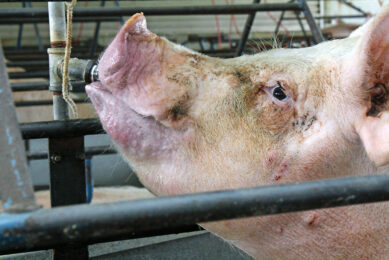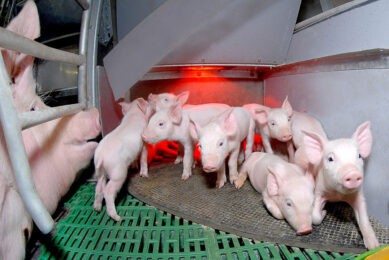NPPC: Greenhouse gas reporting will add to swine costs

The US Environmental Protection Agency’s proposal to require livestock agriculture to report manure-related greenhouse gas emissions is not well thought out and could increase environmental problems, according to the National Pork Producers Council.
In comments on the plan submitted yesterday, NPPC applauded EPA’s efforts to address global climate change and provide leadership in protecting the environment. But the group said requiring livestock producers to report manure-related emissions will add costs to pork operations while basically duplicating information EPA already compiles. The group said EPA should step back and let the Agriculture Department take the lead in attempting to reduce greenhouse gases coming from farms and ranches.
“The current greenhouse gas inventory that EPA compiles every year, along with the information from a cap and trade offsets program, is more than enough to support the rule’s objectives,” NPPC said. “Its proposal simply adds great costs to the covered producers without adding anything to the current body of knowledge regarding manure emissions.”
In its comments, NPPC offered a number of reasons why EPA’s mandatory emissions reporting program is not appropriate for hog farms and needs to be revised. Among them:©©
© – Relying on the Clean Air Act to address climate change will steer pork producers toward actions that will increase emissions and could cause additional environmental problems.©© Additional reporting requirements, for example, are a disincentive to installing manure©© lagoon covers and manure digesters that can capture methane gas and convert it to©© electricity.©
© – The Agriculture Department is better equipped than EPA to administer a greenhouse gas©© program for livestock producers. It has the technical expertise and institutional resources, along with a track record for working with farmers on measuring reductions in greenhouse gas emissions. Also, USDA has the producer protections required to assure widespread participation in any greenhouse gas reduction program.©
© – EPA’s proposal exempts from reporting requirements greenhouse gas emissions from natural©© processes such as from animals’ digestive systems. But it doesn’t exempt manure©© decomposition—also a natural process—even though it accounts for only a small portion of©© total livestock-related greenhouse gas emissions.©
© – EPA failed to adequate describe which operations are subject to mandatory reporting.©© Conflicting definitions of “facilities” and “manure management systems” leave in doubt who©© is covered under the regulation and who is not.©
© – While EPA estimated that farms with at least 73,000 hogs will be required to report©© emissions, it did not explain how it arrived at this number. NPPC, working with industry and university scientists, has been unable to duplicate it.©
© – The costs of the recordkeeping and reporting requirements under the rule are©© underestimated. EPA’s estimate of $900 to conduct tests and do emissions calculations bears little relation to the actual costs hog farmers will incur to comply with the rule.©
©
Related website
• NPPC











